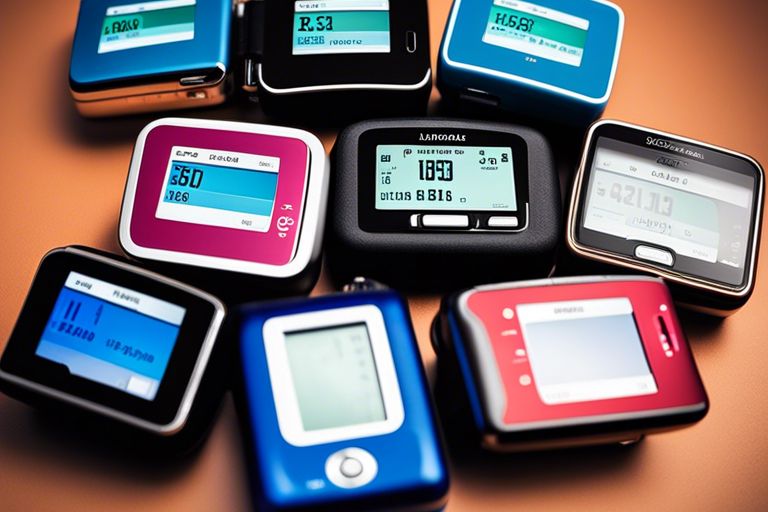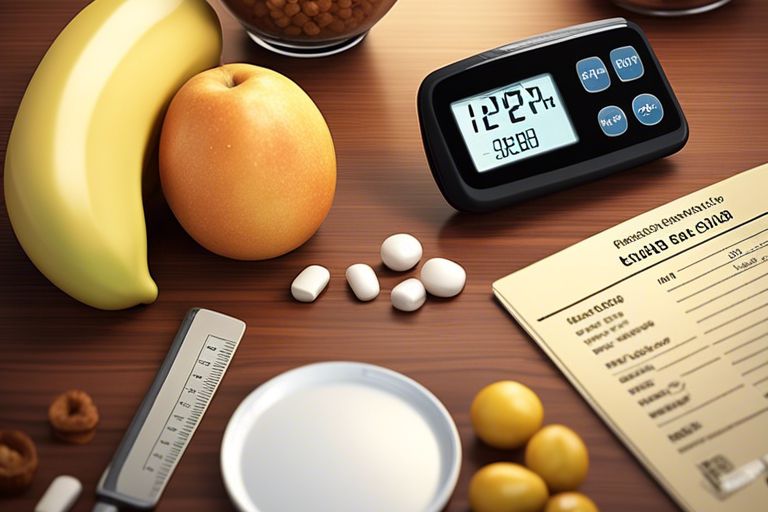Diabetes Type 1 is a chronic autoimmune disease that affects millions of people worldwide. People with Type 1 diabetes have a malfunctioning pancreas that doesn’t produce enough insulin, which is necessary to regulate blood sugar levels. While insulin injections are the primary treatment for Type 1 diabetes, diet and exercise also play a critical role in managing the condition. In this article, we will explore the important role of diet in managing diabetes Type 1 and provide guidance on what to eat and what to avoid.
Understanding Diabetes Type 1
To understand the role of diet in managing diabetes Type 1, it’s essential to understand the condition itself. Diabetes Type 1 is an autoimmune disease in which the immune system mistakenly attacks and destroys insulin-producing cells in the pancreas. As a result, people with Type 1 diabetes have to inject insulin regularly to keep their blood sugar levels under control.
The Importance of a Healthy Diet
While insulin injections are necessary, diet plays a crucial role in managing diabetes Type 1. A healthy diet can help control blood sugar levels, reduce the risk of complications, and improve overall health.
Macronutrients and Diabetes Type 1
Macronutrients, such as carbohydrates, proteins, and fats, have different effects on blood sugar levels. Therefore, it’s essential to understand the role of each macronutrient in diabetes Type 1 management.
Carbohydrates
Carbohydrates are the primary macronutrient that affects blood sugar levels. Therefore, people with diabetes Type 1 need to pay attention to the amount and type of carbohydrates they consume. Complex carbohydrates, such as whole grains, fruits, and vegetables, are better for managing blood sugar levels than simple carbohydrates, such as sugar and refined grains.
Proteins
Proteins have a minimal effect on blood sugar levels, but they are essential for building and repairing body tissues. People with diabetes Type 1 should choose lean protein sources, such as poultry, fish, beans, and tofu, and limit high-fat protein sources, such as red meat and full-fat dairy products.
Fats
Fats have a minimal effect on blood sugar levels, but they are essential for overall health. People with diabetes Type 1 should choose healthy fats, such as monounsaturated and polyunsaturated fats found in nuts, seeds, and fish, and limit saturated and trans fats found in processed foods.
Micronutrients and Diabetes Type 1
Micronutrients, such as vitamins and minerals, are also essential for managing diabetes Type 1.
Fibre
Fibre is a type of carbohydrate that is not digested by the body. Fibre slows down the absorption of carbohydrates and helps regulate blood sugar levels. People with diabetes Type 1 should choose high-fibre foods, such as whole grains, fruits, and vegetables.
Vitamins and Minerals
Vitamins and minerals are essential for overall health and can help reduce the risk of complications associated with diabetes Type 1. People with diabetes Type 1 should consume a variety of fruits, vegetables, and whole grains to ensure they get all the necessary vitamins and minerals.
What to Eat
A healthy diet for people with diabetes Type 1 should consist of nutrient-dense, whole foods that are low in added sugars and refined carbohydrates.
Vegetables
Non-starchy vegetables, such as broccoli, spinach, and kale, are rich in fibre and essential vitamins and minerals. People with diabetes Type 1 should aim to consume at least two cups of non-starchy vegetables per day.
Whole Grains
Whole grains, such as brown rice, quinoa, and whole-wheat bread, are high in fibre and essential vitamins and minerals. They also have a lower glycemic index than refined grains, which means they are digested more slowly, leading to a more gradual rise in blood sugar levels.
Lean Proteins
Lean protein sources, such as chicken, fish, tofu, and beans, are essential for building and repairing body tissues. They also have a minimal effect on blood sugar levels, making them an ideal choice for people with diabetes Type 1.
Healthy Fats
Healthy fats, such as those found in nuts, seeds, and fish, are essential for overall health. They can also help regulate blood sugar levels and reduce the risk of complications associated with diabetes Type 1.
What to Avoid
People with diabetes Type 1 should avoid foods that are high in added sugars, refined carbohydrates, and unhealthy fats.
Added Sugars
Foods and beverages that are high in added sugars, such as soda, candy, and baked goods, can cause a rapid rise in blood sugar levels, which can be dangerous for people with diabetes Type 1.
Refined Carbohydrates
Refined carbohydrates, such as white bread, white rice, and pasta, are digested quickly and can cause a rapid rise in blood sugar levels. People with diabetes Type 1 should choose whole grains instead of refined grains.
Unhealthy Fats
Saturated and trans fats found in processed foods, such as fast food and fried food, can increase the risk of complications associated with diabetes Type 1. People with diabetes Type 1 should choose healthy fats, such as those found in nuts, seeds, and fish.
Conclusion
In conclusion, a healthy diet plays a critical role in managing diabetes Type 1. People with diabetes Type 1 should focus on consuming nutrient-dense, whole foods that are low in added sugars, refined carbohydrates, and unhealthy fats. A diet rich in complex carbohydrates, lean proteins, healthy fats, and essential vitamins and minerals can help control blood sugar levels, reduce the risk of complications, and improve overall health.
FAQs
- Can people with diabetes Type 1 eat sugar? It is best for people with diabetes Type 1 to limit their intake of added sugars, as they can cause a rapid rise in blood sugar levels.
- What are some healthy snack options for people with diabetes Type 1? Some healthy snack options for people with diabetes Type 1 include fresh fruit, vegetables with hummus, and unsalted nuts.
- Is it necessary for people with diabetes Type 1 to avoid carbohydrates completely? No, it is not necessary for people with diabetes Type 1 to avoid carbohydrates completely. However, they should pay attention to the amount and type of carbohydrates they consume.
- Can people with diabetes Type 1 consume alcohol? It is best for people with diabetes Type 1 to limit their alcohol consumption, as alcohol can cause a rapid drop in blood sugar levels.
- Can a healthy diet cure diabetes Type 1? A healthy diet cannot cure diabetes Type 1, but it can help manage the condition and reduce the risk of complications. Insulin injections are still necessary to regulate blood sugar levels in people with diabetes Type 1.




